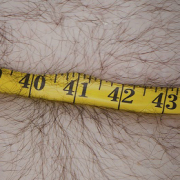Direct-to-consumer testing: a clinician’s guide
In the second of this week’s articles on DTC genetic tests, guest author Dr Rachel Horton explains some of the common pitfalls and the key points clinicians need to know
The first of this week’s articles on DTC testing is available here.
Testing kits offer to tell customers about themselves – from ancestry, to wine preferences, to talents – and increasingly claim to inform people about disease risks, writes Dr Rachel Horton. Advertising often presents direct-to-consumer (DTC) genetic testing as empowering and responsible, and the testing process is easy and simple: customers put a sample (usually of spit) in the post, and wait a few weeks for their results.
However, there are potential problems with these tests that consumers, and clinicians, need to know about. The testing companies generally include comprehensive information about these issues but, as with ‘small print’ generally, it’s easy to see how people might skip over it, especially with incentives like time-limited offers, or when the test was received as a gift.
The risk of false reassurance – what are the tests looking at?
Genetic tests have different levels of thoroughness. Many DTC tests work by SNP-chip genotyping, meaning that they check what variation (DNA ‘letter’ at a particular spot in the genetic code) a person has at thousands of different points across the genome. The overall results that the company report back on are based on a handful of these different points.
Most DTC genetic tests that look at genes like BRCA1 and BRCA2 (where certain variations are linked to a high chance of breast and ovarian cancer) only examine a tiny proportion of the thousands of potential variations in these genes that are associated with increased cancer risk. As a result, there are many harmful variations they can’t spot.
Generally, DTC genetic testing companies’ reports specify if they have only taken a very limited look at particular genes, and some have really impressive and detailed information about this on their websites.
However, the stats they give about false negatives understandably relate to the test they’re actually doing: so a reported false negative rate below 1% means that, for the particular variations within a gene that a test looks at, the test would miss less than 1% of people who have one of these exact variations. However, a BRCA test only looking at three common variants would miss around 80% of people with a BRCA variant that increased their chance of cancer.
From clinical practice, we know that many people initially think a BRCA test is a yes/no test to see if they’ve ‘got the BRCA gene’, so they might not realise there are different types of BRCA test with very different levels of thoroughness. The worry is that they might think good-looking false negative stats apply to the whole gene, not just the particular variants that a company looks at, so they might be falsely reassured if nothing was found by a DTC genetic test.
Beware of ‘raw data’ from DTC genetic tests
Some DTC genetic testing companies have an option for people to download the ‘raw data’ from their tests. For the many companies that use SNP-chip genotyping, this data will essentially contain a read-out of all the variations that the SNP-chip checked for, which is often thousands more than the DTC company will use to create their results.
Other online companies might offer to re-process this raw data, suggesting that people can ‘look deeper’ to find out more results.
However, these raw data files will include some false positives, where variations have been wrongly detected in a person’s DNA. The rarer a genetic variation is, the worse this problem gets: SNP-chips are great at correctly detecting common variations, but when they indicate a very rare genetic variant, they are more likely to be wrong than right.
This is a problem because genetic variants associated with a high chance of disease are often very rare, so it’s precisely those variants that would be most worrying that are most likely to be falsely detected by SNP-chips.
Work comparing SNP-chip data and next-generation sequencing data from 50,000 people in UK Biobank found that 96% of disease-causing BRCA variations identified via SNP-chip were false positives.
Key points for clinicians
Patients might understandably take DTC genetic results at face-value. It’s important that you don’t. Some key considerations are:
- Family history matters: in many cases, this will say much more about a person’s chance of disease than any result from DTC genetic testing.
- Don’t be reassured by negative (‘nothing found’) results from DTC genetic tests – many tests look for variants in a very limited way.
- Results found by re-processing raw data from DTC genetic tests are often inaccurate – and broadly speaking the more worrying they look, the more likely they are to be wrong.
The Royal College of General Practitioners (RCGP) and the British Society for Genetic Medicine (BSGM) recently issued a position statement recommending that “health professionals should exercise caution when asked to offer, or provide, clinical expertise about the results of direct-to-consumer genetic or genomic testing”.
If a patient asks you about a DTC result, you could make them aware of the common limitations of DTC genetic tests. You could also discuss that, for most health problems, genetics isn’t the whole story: lifestyle matters a lot, and can be changed.
If you’re worried that the DTC test has picked up something that would have a big impact on clinical care (like a disease-causing BRCA variant), seek advice from your regional clinical genetics service, but bear in mind that the result could well be wrong.
Finding out more
Some useful resources for clinicians include:
- This BMJ education article and this BMJ Talk Medicine podcast discuss some common limitations of DTC genetic tests, and include suggestions about how to discuss these with patients.
- These resources from the Genioz study are designed to help people think through decisions about DTC genetic testing. They’re based on research done in Australia, but are very relevant to people in the UK too.
- This joint position statement from RCGP and BSGM gives guidance to clinicians asked to comment on results from DTC genetic tests.
Rachel is a genetics registrar and clinical training fellow at Southampton University’s Clinical Ethics and Law department in the Faculty of Medicine, and would like to thank Professor Anneke Lucassen for her input with this article.
–









